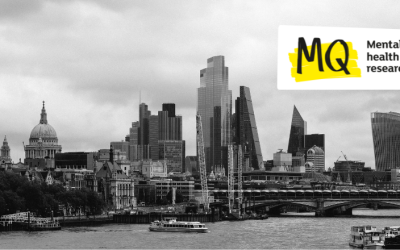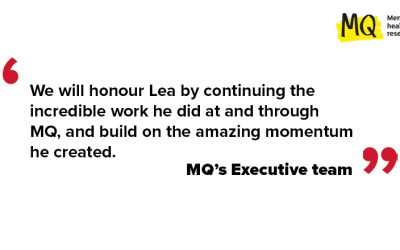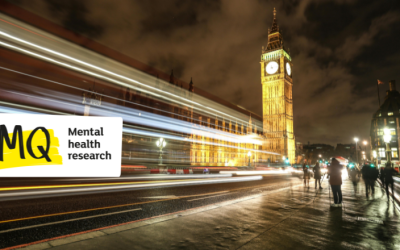MQ ambassador James Downs explains the issues that prevent the LGBTQ+ community from getting appropriate support for their mental health.
Pride month represents an embrace of LGBTQ+ identities and a protest against those preventing LGBTQ+ groups and individuals from living full, healthy and happy lives as equal participants in society. Mental health has to be a part of this conversation.
When it comes to mental health, it’s clear that there are particular pressures experienced by LGBTQ+ people - from body image concerns and higher rates of eating disorders to higher risks of severe mental illness and suicide. Alongside this increased need for support, LGBTQ+ individuals often report that mental healthcare can feel excluding and not geared up to cater for their needs by misunderstanding ideas around gender and sexuality.
On the other hand, research evidence shows that sexual and gender minority communities offer mutual support, positive role models, and a sense of belonging that can improve emotional resilience and wellbeing. Services can also do a lot to improve a patient’s experiences, such as undertaking training in cultural and clinical competency in transgender health, facilitating access to gender-affirming interventions and using correct pronouns - all of which have been shown to help some of the most vulnerable groups feel included in treatment.
In my own experience as a gay man with an eating disorder, I have often had my sexuality used by professionals to explain away my condition and been met with judgemental attitudes based on stereotyped ideas about my lifestyle. I’ve found these stigmas to harm my mental health in their own right, which was the last thing I wanted when trying to access support, especially when I had experienced bullying and harassment in wider society. These interactions left me feeling ashamed - the opposite of pride, and we should be doing all we can to offer people support that celebrates rather than rejects diversity.
If Pride is a protest, we need to protest the causes of worse mental health amongst LGBTQ+ groups and the central role of stigmatising and discriminatory attitudes wherever they exist in society.
If Pride is a protest, we must shout about the increased need for mental health support in the LGBTQ+ community that isn’t being adequately met.
If Pride is a protest, we need to call out where care is not inclusive and doesn’t respond to people as unique individuals, irrespective of their sex or gender identity.
Doing this will enable LGBTQ+ people like me to live lives of celebration, proud of who we are, where we are included in a society where we can flourish and get the support we need, too.



